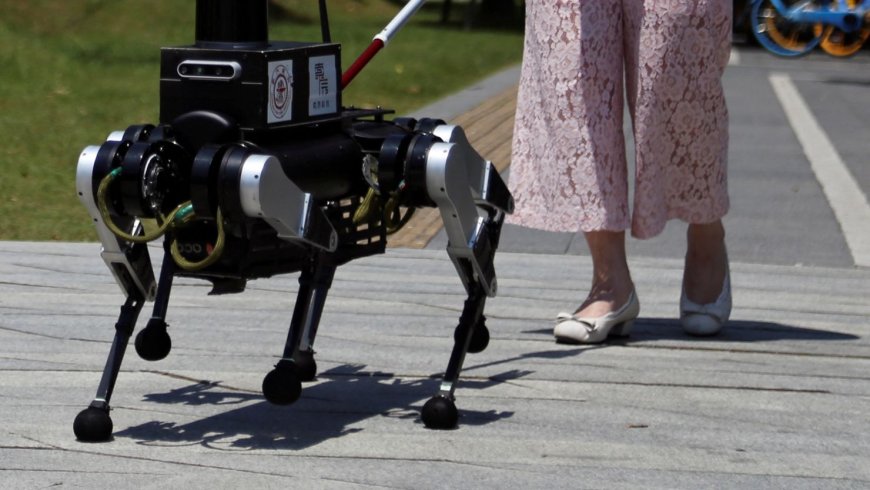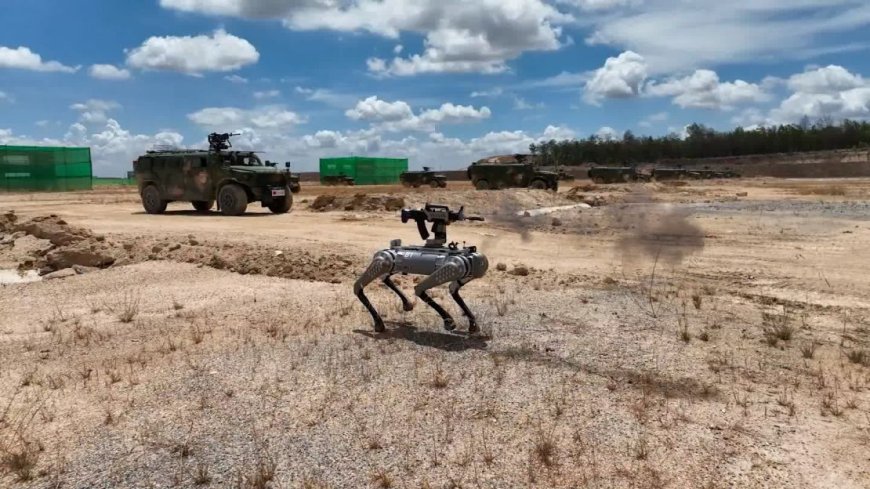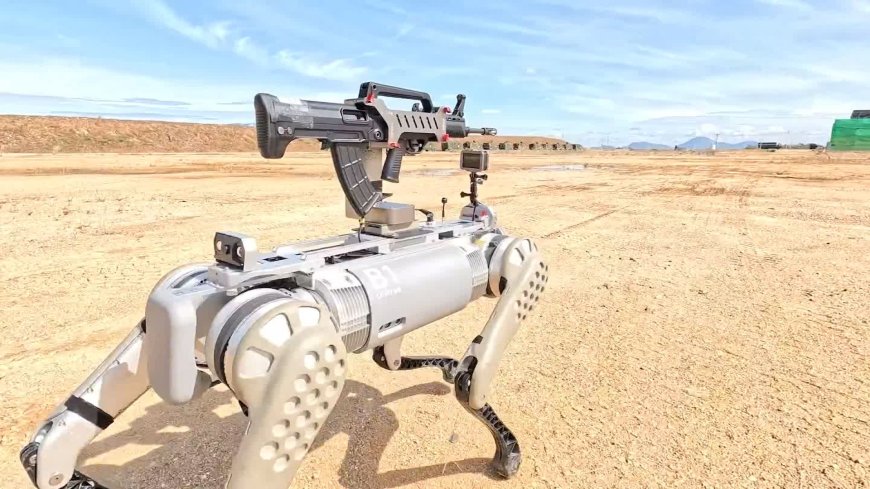Chinese researchers test robot ‘guide dogs’ to help the visually impaired

Shanghai — It’s less furry than a traditional companion, but a six-legged Chinese robot “guide dog” could one day help vision impaired people live with more independence, according to its research development team in Shanghai.
The robot dog, which is currently being field-tested, is able to navigate its physical environment via cameras and sensors, including recognizing traffic light signals, which traditional guide dogs are unable to do.

Roughly the size of an English Bulldog but a bit wider, it can communicate by listening and speaking with a visually impaired operator with AI-technology incorporated in its voice recognition, route planning capabilities and traffic light recognition. It also has six legs, which the researchers say help it walk smoothly and with maximum stability.
“When three legs are lifted, there are still three legs … like the tripod of a camera. It is the most stable shape,” said Professor Gao Feng, the head of the research team at Jiao Tong University’s School of Mechanical Engineering in Shanghai.
“If this robot guide dog comes onto the market and I could use it, at least it could solve some of my problems in traveling alone,” Li said. “For example, if I want to go to work, the hospital or the supermarket (now) I cannot go out alone and must be accompanied by my family or volunteers.”
Robot guide dogs are under development in other countries, including Australia and Britain, but China has a drastic shortage of traditional guide dogs.
In China, there are just over 400 guide dogs for almost 20 million blind people, Gao said.
Pet ownership and service animals are also relatively new concepts in the country, meaning many workplaces, restaurants and other public areas wouldn’t welcome a more traditional helper like a Labrador.

Unlike those dogs, which will always be limited in supply due to the natural limitations of breeding and the intense training required, Gao said the production of robot guide dogs could be scaled, especially in a major manufacturing hub like China.
“It’s a bit like cars. I can mass-produce them in the same way as cars, so it will become more affordable,” Gao said. “I think this could be a very large market, because there might be tens of millions of people in the world who need guide dogs.”
Source : Reuters/CNN
























































